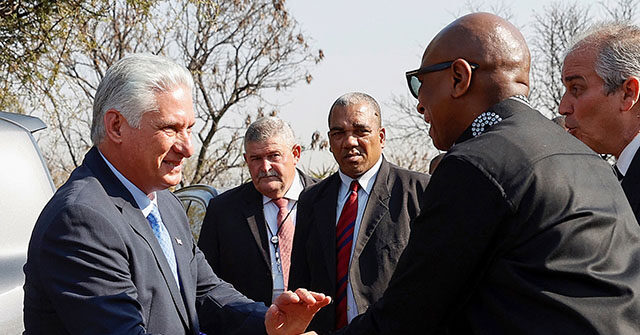On Monday, the Cuban government publicly announced its formal request to join the BRICS coalition as a “partner” country, which was originally formed by Brazil, Russia, India, China, and South Africa to counterbalance U.S. influence globally. This request comes amidst Cuba’s ongoing struggles with an economic crisis exacerbated by decades of Communist rule, which has left the island nation facing severe shortages of basic goods, frequent power outages, and a lack of fuel supplies. As BRICS has recently expanded, with an emphasis on strengthening its geopolitical presence, Cuba’s request to join may highlight the coalition’s appeal to nations looking to align against perceived Western dominance.
BRICS serves primarily as a political alliance where member nations support each other’s agendas at international platforms such as the United Nations. The coalition’s members often find common ground in opposing Western sanctions imposed due to human rights abuses, and they are exploring ways to develop alternative economic systems that diminish dependency on the U.S. dollar. Additionally, discussions around a potential security alliance that could rival NATO have surfaced, further solidifying BRICS as a significant player in global politics. However, Cuba and other countries with economic challenges could pose risks to the coalition’s stability and overall strength.
Cuba’s request to join BRICS has sparked dialogue about its potential contributions to the alliance, with officials indicating that the country is eager to engage in various activities related to the coalition. Carlos Pereira, a senior official from the Cuban External Affairs Ministry, confirmed Cuba’s intentions in a letter directed to Russian President Vladimir Putin, the current BRICS chair. The upcoming BRICS summit in Kazan, Russia, scheduled for late October, will showcase discussions on Cuba’s potential membership, where President Miguel Díaz-Canel, who remains under the shadow of Raul Castro, is expected to represent the island nation.
BRICS recently invited six new countries to join as full members, including Egypt, Iran, Saudi Arabia, the United Arab Emirates, Ethiopia, and Argentina. Argentina, however, has seen a political shift that may affect its BRICS membership process, as its newly elected libertarian president, Javier Milei, has expressed resistance to aligning with such coalitions. The dynamics among these newly invited nations, including the uncertainty of Saudi Arabia’s status, reflect the evolving landscape of BRICS membership, with Cuba now joining a growing roster of contenders vying for inclusion in the coalition.
At the upcoming BRICS summit, Cuba will face stiff competition regarding potential partnership status, especially from regional ally Venezuela, which has expressed interest in joining the coalition, with Russian Foreign Minister Sergey Lavrov reaffirming Venezuela’s ambitions. Bolivia has also announced its intention to seek BRICS membership, citing its lithium resources. The current competition among countries hoping to join BRICS reveals a trend where countries with significant economic assets or critical resources are prioritized, potentially leaving nations like Cuba at a disadvantage due to their economic struggles.
As BRICS continues to expand, its relationships with potential new members spark debate about future directions for the coalition, particularly in the context of its perceived challenge to NATO’s influence. The recent interest from Turkey, which is navigating its relationship with NATO under President Recep Tayyip Erdogan’s leadership, adds another layer to this existing rivalry. Meanwhile, France’s Emmanuel Macron’s overtures toward BRICS have been met with skepticism and outright rejection from existing members, illustrating the complexities of posturing within global alliances. Ultimately, Cuba’s bid to join BRICS reflects both its dire economic conditions and the broader geopolitical shifts reshaping international relations.

